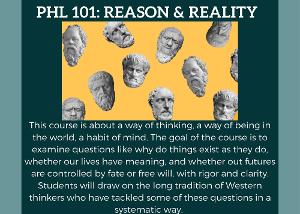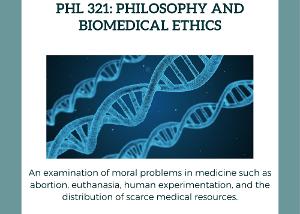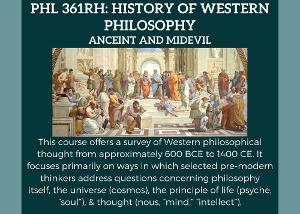Philosophy Courses and Syllabi
Below are examples of some of the courses taught in the department. The Past syllabi attached are for informational purposes only. Course content, including required textbooks, varies semester to semester based on faculty. Syllabi are intended to give students a general idea of the course. Students enrolled in courses should use the syllabus they receive from their professor.
Need a past sylabi? Email history@montana.edu and the department staff will help you locate the syllabi you are looking for. We cannot garantee that we will have the syllabi from the specific class, professor, or year you took the course.




